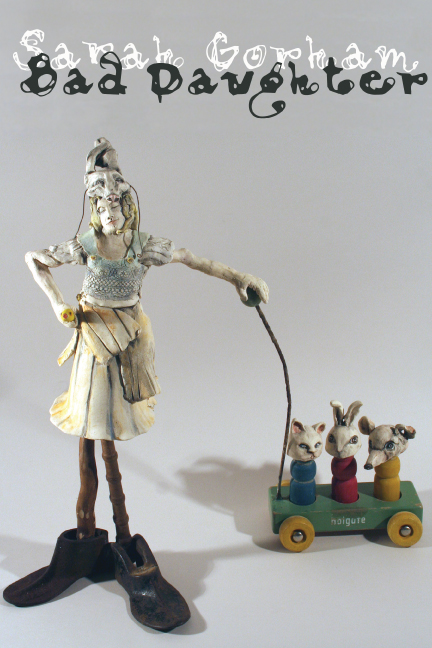
paper • 84 pages • 15.95
ISBN-13: 978-1-935536-16-1
Bad Daughter explores misbehavior, its risky pleasures and often tragic consequences, through poems about “bad” daughters, sisters, and their mothers. Gorham uses several lyric forms—‘morality tales,’ ironic prayers, scaled-down sonnets, sharp meditations on concepts such as envy, detachment, and immortality—to show that the self as forged by generations of women and girls is, it turns out, both subversive and enduring. From the girl who “laughed uproariously/ and unlatched the bunny cages/ to set all hoppers free,/ loosening a hurricane” or the sisters who remember how, “when we were bad, we were extravagant/ like cruise ships through a canal,” Bad Daughter wonders what happens when a young woman refuses her inheritance—and whether she can, in a world where “Genes are a kind of blue letter from a mother/ to her daughter: Good news, bad news.”
Biology isn’t all that is handed down, and Gorham also traces the sanctuary and the limits women find in
worship and in domesticity, drawing on the Jewish proverb, “What the daughter does, the mother did.” This
varied and compelling collection ends with a cyclical return, a poem “On the Birth of a Daughter,” which
tells its listener: “You will be sleepless until you plant the Princess Tree. […] Two words for its
adaptability:/ Trash. Pioneer. Either way, it will survive a fire.”
excerpt from Ice Storm
Hear it fall, laughter from a train.
Under the transparent tapping,
crawl into a hollow
sleep. First comes a dream
of cocktail banter. Then crazy…
I have long admired the exquisite poise—as well as the wisdom and disarming grace—of Sarah Gorham’s poetry. Her newest collection, Bad Daughter, offers meticulously observed meditations arising from a kaleidoscope of familial relationships centering upon mothers and daughters. This is Sarah Gorham’s most powerful and eloquent book yet, a sequence of sustained poetic reckonings upon the demands, despairs, and delights of family—both past and present—and the revelations that emerge in the course of the well-lived life. This is a collection of boundless pleasures. —David St. John
Gorham’s poems are remarkable for their sureness of touch, their fine economies, their penetrating aptitude for surprise…a poet writing at the height of her powers and confidence…the book builds a whole that burnishes each of its parts. —Linda Gregerson